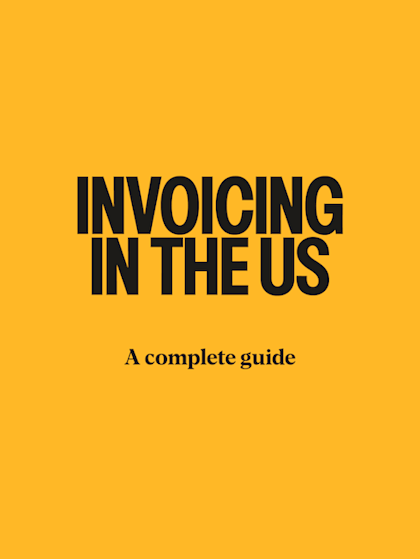
International invoicing
Last editedFeb 20231 min read
A breakdown of the considerations to take note of when invoicing internationally.
Currency considerations
When issuing invoices to foreign customers, businesses often work in commonly-used currencies, such as US dollars, euros or sterling, to minimize complication.
The advantage of invoicing and being paid in US dollars is that there is no exchange rate risk to you. However, foreign customers may prefer to pay in their own currency. Many small businesses billing in a foreign currency hedge against currency risk by getting forward cover (also known as Forward Exchange Contracts) from their bank. This locks in the current exchange rate, so they won’t lose if the rate moves against them while they’re waiting for payment.
In many instances, issuing an invoice is a requirement. If you are selling to a customer located within the EU, for example, EU rules dictate that an invoice must be produced whenever you sell goods, offer services or receive payment on account. This can be done electronically or on paper (with all countries in the EU required to treat electronic and paper invoices as equal). But emailing international invoices makes good sense for reasons of speed, plus avoiding possible mistakes in postal addresses.
If you’re issuing invoices in a foreign currency, different rules may apply depending on whether you’re selling goods or services, plus whether you’re dealing with other businesses or directly with consumers. It may also be necessary to register for sales tax in the country with which you’re trading.
Payment methods
After considering the currency you're going to accept payment in, you need to consider the method by which you'll accept payment. Common payment methods include:
Bank transfer
Wire transfer
Credit or debit card
Digital wallet
Check
Each has pros and cons in terms of time and cost of setup and ongoing operation.
Taxes
Depending on the country your customers is located in, there may be certain taxes and fees to account for.
Businesses buying from, or selling to, EU member states for example, will have to account for international VAT.
Many factors come into effect when calculating international taxes and fees. If you don't have specialist knowledge, it is worth getting an accountant or lawyer involved.
